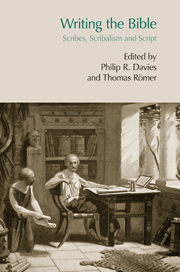1 - Introduction
Summary
CHOMINA: Blackrobe, what you do?
FATHER LAFORGUE: I am making words.
CHOMINA: Making words? You not speak.
FATHER LAFORGUE: I will show you. Tell me something.
CHOMINA: Tell what?
FATHER LAFORGUE: Something I do not know.
CHOMINA: My woman's mother die in snow last winter.
[Laforgue writes it and shows the book to Daniel]
DANIEL: It says Chomina's woman's mother died in snow last winter.
FATHER LAFORGUE: I have still other, greater things I can teach you.
OUGEBMAT: He is a demon!
SOCRATES: He would be a very simple person, and quite a stranger to the oracles of Thamus or Ammon, who should leave in writing or receive in writing any art under the idea that the written word would be intelligible or certain; or who deemed that writing was at all better than knowledge and recollection of the same matters?
The first excerpt, from the 1991 film Black Robe, is a conversation between an Algonquin and a Jesuit missionary in what is now Quebec, illustrating well how the technique of writing may have been received in a society with no knowledge or understanding of it. The second is from Plato's Phaedrus, in which Socrates famously decries writing as compared with speech.
Which of these opinions reflects how writing and its practitioners were regarded in the societies and cultures of the ancient Mediterranean and Near East, among which the literature of the Bible was produced? The answer is both, and this volume will explore the way in which the conflict between the authority of writing and of speech is played out.
- Type
- Chapter
- Information
- Writing the BibleScribes, Scribalism and Script, pp. 1 - 9Publisher: Acumen PublishingPrint publication year: 2013

